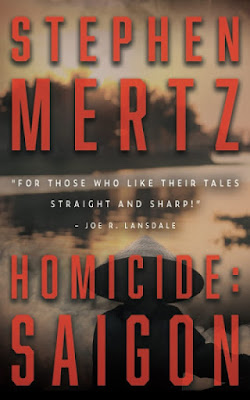This is a pulp that I own and read recently. That’s my copy in the scan. As I’ve mentioned before, I’m not a big fan of Lee Floren’s work, despite him being both prolific and popular for a long time. I picked up this pulp to read anyway, even though he’s the author of the featured novel, “Smoky River Gunsmoke”. And for a change, unlike most pulp “novels”, this one probably is close to actual novel length. Ace Double length, anyway.
And for another change, I enjoyed it quite a bit. Yes, the writing is clumsy at
times. Floren’s attempts at humor usually fall flat. The plot, a standard
cattlemen vs. homesteaders yarn, is nothing we haven’t read and seen a thousand
times before. But the characters have unexpected depth to them, even the bad
guys. The main villain does some things that make him a poignant, almost tragic
figure. He’s still evil, mind you, but there’s more to him than that. Also, the
action scenes are great. I think I’m coming to the realization that Floren was
just one of those writers who had a distinctive style, for better or worse (and
sometimes it’s both), and I appreciate that. After reading this one, I may
actually seek out more of his work.
Richard Deming was a top-notch mystery author whose work I’ve long admired, so
I was a little surprised that his short story in this issue, “Reluctant Killer”,
isn’t very good. This tale of a deadly gunman’s quest for a normal life is well-written,
but it’s pretty slow and talky and not much happens.
I’m not that familiar with Charles D. Richardson Jr. I think I’ve seen his name
in Western pulps, but that’s all I know about him. “Ride ’Em, Cowgirl” is a
horse race story, with the cowgirl of the title trying to replace her injured
beau in an important race. There’s nothing really wrong with this one, but it
never caught my interest.
I’ve read several stories by Lloyd Kevin and the only novel he published, a
hardboiled sleaze novel from Monarch Books. His novelette in this issue, “Schoolmaster
From the East”, could well be a reject from RANCH ROMANCES. The title character
comes to a Western town and finds himself in the middle of a conflict over
water rights, as well as falling for the beautiful daughter of the rancher who
controls the source of that water. Although I think it could have used a more
dramatic title, I enjoyed this story. The author doesn’t fall into the trap of
making his protagonist more competent than he logically should be, and the
mystery element is worked out fairly well. This is the second-best story in the
issue, after the Floren yarn.
Richard Brister, another author whose name is familiar to me, rounds out things
with the short story “No Whiskey on Hobnail”, in which a rancher attempts to
rehabilitate a young criminal from the big city. This is also a pretty good,
effective story and makes me want to read more by Brister.
So, overall, this isn’t an outstanding issue of DOUBLE-ACTION WESTERN, but it’s
a good one. Surprisingly good in the case of the Floren novel. That’s happened
to me on occasion before, not being a fan of a writer’s work and then coming to
appreciate and enjoy it. We’ll see if that comes about again.



















